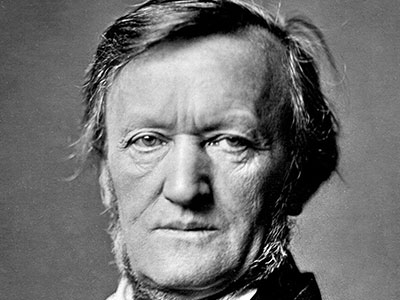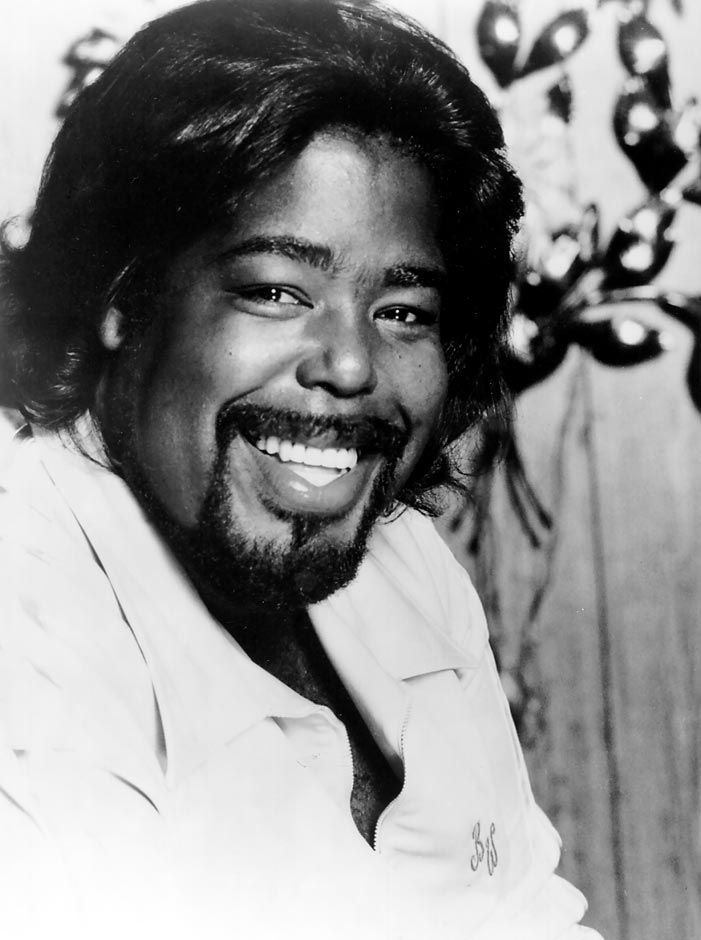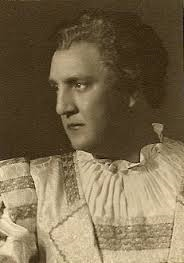|
Saturdee
Opry Links # 100:
"Tannhauser"/Barry White Edition (mostly)
Saturdee Opry Links' consummately irrelevant 100th
edition is mostly an overview of Wagner's "Tannhauser," complete
with Barry White references. PLUS. . .two "angel" arias at the end. Why?
You'll have to read to find out the method in the madness. PLUS. . .overture, nude archers, strange
attire, pregnant women! Good luck, a bientot, sayonara, hit the road, Jack.
Salud.
 
Richard
Wagner
Barry
White
Saturdee Opry Links Overture!
"Tannhauser," by Wagner. Magnificent!
https://www.youtube.com/watch?v=nW5lTeA5xDM
1.
Okay, hide the kids! Tannhauser has just spent days,
possibly months, in Venusberg, banging his brains out. I'm sorry to be
indelicate. Let me rephrase that: he has indulged to his hard's, I mean
heart's, content, with countless lascivious, concupiscent nymphs of the most
alluring, enthusiastic sort. And he's finally had enough. He's spent. The
old hickory dickory has docked. As Popeye was wont to say, "That's all I can
stands. I can't stands no more!" So poor old Tannhauser showers Venus, the
Goddess of Love, with the most poetic praise, by means of begging her to let
him return to civilization, lest he perish from pleasure. (Death, where is
thy sting?) Anyhow, this is "Dir töne Lob," from "Tannhauser," by Wagner.
Sung by Placido Domingo.
https://www.youtube.com/watch?v=lpDuC0DaSAg
Setting: the Venusberg, near Eisenach, early 1200's
Synopsis: Tannhäuser is inside the mountain of Venus,
surrounded by nymphs and satyrs. He worships the goddess of Love and
expresses his praise for her in a hymn. The hymn's verses are divided by
conversation between Venus and Tannhäuser.
Translation:
Let your praises ring out! Let the marvel
your might created for me, fortunate as I am, be
extolled!
May the sweet delight, sprung from your favour,
raise my song up in a loud cry of jubilation!
My heart yearned, oh my senses thirsted
after pleasure, after delicious gratification:
that which once you rendered to gods alone
you graciously bestowed upon me, a mortal.
But mortal, oh, I have remained
and your loving is too huge for me.
Though a god may incessantly savour enjoyment,
I am subject to change:
not pleasure alone lies close to my heart -
in the midst of joy I crave after pain.
From your kingdom I must fly -
O queen,
goddess, let me go!
(For original German, go to this link and search for
"Lob"
http://www.murashev.com/opera/Tannh%C3%A4user_libretto_English_German )

Max Lorenz
Or the hardcore, so to speak, might prefer the great
heldentenor, Max Lorenz. A homosexual Jew saved from extermination by the
Nazis because Adolf liked his singing. Really!
https://www.youtube.com/watch?v=ebp4nk7Ce1M
About Lorenz:
https://www.madisonlyricstage.org/lorenz.html
2.
Venus kindly listened to Tannhauser (pronounced
"TAN-hoiser) eloquently beg off from more rumpypumpy, but, being Venus, she
won't have it. "Come, beloved!" she says, and you are free to take that any
way you like. To further flail the metaphor, she adds, "See yonder grotto,
filled with rosy fragrance gently wafting!" Uh, yup. Brings to mind the
famous admonition by the philosopher of love, Barry White: "I've heard
people say that too much of anything is no good for you, baby. . .but. . .I
don't know about that. . .the many times that we've shared love and made
love. . .doesn't seem to me that it's enough. . ." Here is "Geliebter,
komm!" from "Tannhauser," by Wagner. Sung here by Mona Somm. (I hear she's
somm mona!) Such gorgeous music accompanying such, um, earthy subject
matter.
https://www.youtube.com/watch?v=yz07PqcG6Xc
Translation:
Come, beloved, see yonder grotto,
filled with rosy fragrance gently wafting!
That abode of sweetest delight would offer
enchantment even to a god.
Lulled on the downiest of cushions
let every hurt fly from your limbs,
let coolness fan your burning brow,
blissful ardour swell heart.
Come, sweet love, come, follow me! Come!
CHOIR OF SIRENS
Draw near the strand!
VENUS
From the pleasant distance, sweet sound usage
my arm to enfold you in closest embrace:
from my lips, my gaze,
you sip nectar divine,
the reward of love sparkles for you:
a feast of delight shall arise from our union.
Let us joyfully celebrate the festival of love!
You must not dedicate a timid offering to it -
revel in union with the goddess of love!
Say, sweet friend, tell me, my beloved -
would you fly?
(For German, go to this link and search for
"Geliebter:"
http://www.murashev.com/opera/Tannh%C3%A4user_libretto_English_German )
Or the more hardcore might enjoy this extended clip
with wonderful Grace Bumbry, live in 1961:
https://www.youtube.com/watch?v=K5I1iNsWIpc
IF THE GERMAN IS A LITTLE HEAVY FOR YOU, ENJOY THIS SONG BY BARRY WHITE INSTEAD. SAME IDEA:
https://www.youtube.com/watch?v=_x2Z3hjaktg
3.
Okay, hide your pets! Here is the "Venusburg" scene
from "Tannhauser," by Wagner. This is sometimes staged largely nude, here in
the ridiculously literal and vulgar 21st century. Of course, crazy Wagner
might have liked that, for all I know. The thing is, it's all in the music,
which is meant to suggest the delerium of sex. Kind of like what Barry White
might have done if had gone to Julliard. Here is Wagner's own description of
the sequence:
"The stage represents the interior of the
Venusberg...In the distant background is a bluish lake; in it one sees the
bathing figures of naiads; on its elevated banks are sirens. In the extreme
left foreground lies Venus bearing the head of the half kneeling Tannhäuser
in her lap. The whole cave is illuminated by rosy light. – A group of
dancing nymphs appears, joined gradually by members of loving couples from
the cave. – A train of Bacchantes comes from the background in wild dance...
– The ever-wilder dance answers as in echo the Chorus of Sirens." I offer
two productions. The first is a more traditional staging, from the
Metropolitan Opera. The second is an insane, kind of Yoko Ono staging, with
the Deutsches Symphonie.
1.
https://www.youtube.com/watch?v=KfYAw3fgaXQ
2.
https://www.youtube.com/watch?v=PZUf7BqIn24

Venusburg Fun!
SOL EXTRA!
Preview: Goofy production of "Tannhauser," including, for reasons known only
to insane directors, topless archers.
https://www.youtube.com/watch?v=0D5hByvNlvc

Careful with those strings, ladies.
4.
The story of "Tannhauser" concerns the struggle between
sacred and profane love, and most of all, redemption through love. As LA
Opera conductor James Conlon often notes, all Wagner's work is about
redemption through love, every bit of it. Here, from my copious files, is my
summary of the plot:
Tannhauser is a great knight who wound up in a garden
of fleshly delight---actually a hollow mountain---called Venusberg, where he
fornicates endlessly with the namesake of this den of inflagrante delicto.
He gets a bit bored with the old jiggerypoke after awhile, and heads back to
earth in order to enjoy some nice breezes and meadows and babbling brooks.
Runs into his old flame, Elisabeth, and former roustabout knight cronies,
and well, things get kind of dicey when ‘Hauser indulges a bit of his old
um, Venusberg tendencies. They all banish him to Rome to get gooba-gobba’ed
by the Pope, but the Pope says he will bless the Tann Man on the day that
his wooden staff (as opposed to the one he was using in Venusberg) sprouts
leaves again. In other words: in a pig’s eye! This being an opera, people
then begin to prostrate themselves and die of grief: first Elisabeth, then
T. Haus, after he finds her turned into an angel.
Poetic/symbolic/philosophical/ Biblical/(maybe even sexual) justice follows
when the wooden staff. . .sprouts leaves. Curtain.
Yes, it's much more elaborate than this, but this will
do for Saturdee Opry Links' purposes. Now. . .
Elizabeth is forever bedeviled by Tannhauser's
dalliances and flip-flopping, but she is constantly supported by the
steadfast Wolfram, who loves her. Here, the noble Wolfram prays for her
happiness, with the lovely, poignant baritone aria, "O du mein holder
Abenstern." (Ode to the Evening Star.) Here is the great Bryn Terfel, in
concert.
https://www.youtube.com/watch?v=RRu-aRFEsAc
AND. . .how it can look on stage:
https://www.youtube.com/watch?v=_8ix9jrP_Ik
Translation:
Like a presentiment of death, twilight covers the land
and shrouds the valley in sombre raiment;
the soul that yearns for heaven's heights
is fearful before its flight through night and horror.
There thou shinest, oh loveliest of stars!
Thy sweet light thou dost send into the far-off
distance,
thy dear beam pierces the evening twilight,
and, in friendly fashion, thou dost point the way out
of the valley.
Oh thou, my gracious evening star,
how gladly have I always greeted thee;
from a heart that she never betrayed
salute her as she passes by thee,
as she soars from this earthly vale,
to become a blessed angel yonder.
(Good part starts at 2:20.)
German (if you want to sing along!):
Wie Todesahnung, Dämm'rung deckt die Lande,
umhüllt das Tal mit schwärzlichem Gewande;
der Seele, die nach jenen Höh'n verlangt,
vor ihrem Flug durch Nacht und Grausen bangt!
Da scheinest du, o lieblichster der Sterne,
dein sanftes Licht entsendest du der Ferne,
die nächt'ge Dämmrung teilt dein lieber Strahl,
und freundlich zeigst du den Weg aus dem Tal.
(aria begins)
O du, mein holder Abendstern,
wohl grüsst' ich immer dich so gern;
vom Herzen, das sie nie verriet,
grüsse sie, wenn sie vorbei dir zieht, -
wenn sie entschwebt dem Tal der Erden,
ein sel'ger Engel dort zu werden!
5.
Here is a far more subtle aria from
"Tannhauser," this one for baritone, sure to drive you all away. It is one of deep musing,
literally singing the praises of virtuous love---in strictly the most poetic
language. You are sure to fall asleep, or run screaming from the room. Or
you might fall asleep and run screaming from the room. Or. . .it might
put you in a kind of contemplative, humble frame of mind, tinged with
instinctive awe of the beauty at hand. This is "Blick' ich umher in diesem
edlen Kreise," or "When I cast my eye around this noble circle."
Ah, the Germanic broodiness of it all!
Synopsis:
To start the tournament of song which has as its prize
the hand of Elisabeth, Wolfram sings an ode praising the virtues of holy and
righteous love. I suggest that you start listening at about the 2:10
mark, which begins with the line, "Da blick ich auf zu einem nur der
Sterne," ("I lift my eyes up yonder to one star.") Here is Christian
Gerhaher, the Man Who Sounds Like Fischer-Dieskau.
https://www.youtube.com/watch?v=DGmYxG1V9PY
Translation:
(Search for "blick ich")
http://www.murashev.com/opera/Tannh%C3%A4user_libretto_English_German
AND here is how it can look on stage (start around
2:20)
https://www.youtube.com/watch?v=bgKqeuupbMc
6.
Not all of "Tannhauser" is fornication and unrequited
love. How's that for an intellectual analysis? There is even a bit of
reality programming. Yes, it's "Tannhauser's Got Talent!" A singing contest,
no less---which Tannhauser scandalizes by singing the praises of the flesh.
You know, like Barry White (
https://www.youtube.com/watch?v=xPiOomyrlQ4 ). But all of this is
preceded by some of the grandest music in all opera---appropriately dubbed
the "Grand March" of guests assembling for the big show. You'll
love it! Here are two
versions, for your dining and dancing pleasure: First, a traditional
staging, and then one with looney-tunes costumes.
Synopsis:
Scene 4 and Sängerkrieg (Song Contest). Elisabeth and
the Landgrave watch the guests arrive. The guests assemble greeting the
Landgrave and singing "Freudig begrüssen wir edle Halle" (With joy we greet
the noble hall), take their places in a semicircle, with Elisabeth and the
Landgrave in the seats of honour in the foreground.
1. Traditional:
https://www.youtube.com/watch?v=SB-P6lqP76k
2. Looney-tune:
https://www.youtube.com/watch?v=mT5Igmv8eow
OR. . .If you just want to listen to this great music
by a great orchestra. . .
https://www.youtube.com/watch?v=Qcel3OT_1QM
TRANSLATION:
KNIGHTS AND NOBLES
Joyfully we greet the noble hall,
where may art and peace alone linger ever,
and the joyous cry long ring out:
To the Prince of Thuringia, Count Hermann, hail!
LADIES
Joyfully we greet the noble hall,
where may art and peace alone linger ever,
and the joyous cry long ring out:
To the Prince of Thuringia, Count Hermann, hail!
(For German, go here and search for "freudig":
http://www.murashev.com/opera/Tannh%C3%A4user_libretto_English_German )
SOL Extra!
Here is MY hilarious review of the awful LA Opera production of "Tannhauser" from some years
back. If I do say so, myself.
http://riprense.com/operabuff.htm
7.
What are pilgrims doing in an opera featuring a
protracted orgy? Why, illustrating the struggle between sacred and profane
love, of course! Wake up! Here is the glorious, rousing "Pilgrims Chorus"
from Wagner's "Tannhauser."
https://www.youtube.com/watch?v=HwG5C6IR8sE
Synopsis:
The valley of the Wartburg, in autumn. Elisabeth is
kneeling, praying before the Virgin as Wolfram comes down the path and
notices her. Scene 1. Orchestral music describes the pilgrimage of
Tannhäuser. It is evening. Wolfram muses on Elisabeth's sorrow during
Tannhäuser's second absence, "Wohl wusst' ich hier sie im Gebet zu finden"
(I knew well I might find her here in prayer) and her longing for the return
of the pilgrims, and expresses concerns that he may not have been absolved.
As he does so he hears a pilgrims' prayer in the distance, "Beglückt darf
nun dich, O Heimat, ich schauen" (Joyfully may I now you, O homeland,
behold). Elisabeth rises and she and Wolfram listen to the hymn, watching
the pilgrims approach and pass by.
Translation:
Blest, I may now look on thee, oh, my native land,
and gladly greet thy pleasant pastures;
now I lay my pilgrim's staff aside to rest,
because, faithful to God, I have completed my
pilgrimage!
(For German, do a search on "Begluckt" at:
http://www.murashev.com/opera/Tannh%C3%A4user_libretto_English_German )
OR, if you prefer a great orchestral performance:
https://www.youtube.com/watch?v=oDdb65l-49E
8.
The end of "Tannhauser" is, as previously explained, a
catastrophe of unrequited love, bad decisions, and spontaneous emotional
collapse resulting in death. (And GREAT music.) Perhaps to compensate for
the heavy philosophy and symbolism taking place, so as not to unduly tax the
audience, more and more productions are staged with idiosyncratic whim
bordering on sheer insanity. Here is one such, which not only features
nudity, but a bunch of nude pregnant women. And it's an "award-winning"
production from Belgium in 2004. Go figure, folks. I don't direct 'em, I
just post 'em.
Synopsis:
As Tannhäuser repeatedly calls on Venus, she suddenly
appears and welcomes him back, "Willkommen, ungetreuer Mann!" (Welcome,
faithless man!). As Venus continues to beckon, "Zu mir! Zu mir!" (To me!, To
me!), in desperation, Wolfram suddenly remembers there is one word that can
change Tannhäuser's heart, and exclaims "Elisabeth!" Tannhäuser, as if
frozen in time, repeats the name. As he does so, torches are seen, and a
funeral hymn is heard approaching, "Der Seele Heil, die nun entflohn" (Hail,
the soul that now is flown). Wolfram realises it must be Elisabeth's body
that is being borne, and that in her death lies Tannhäuser's redemption,
"Heinrich, du bist erlöst!" (Heinrich, you are saved). Venus cries out,
"Weh! Mir verloren" (Alas! Lost to me!) and vanishes with her kingdom. As
dawn breaks the procession appears bearing Elisabeth's body on a bier.
Wolfram beckons to them to set it down, and as Tannhäuser bends over the
body uttering, "Heilige Elisabeth, bitte für mich!" (Holy Elisabeth!, pray
for me!) he dies. As the growing light bathes the scene the younger pilgrims
arrive bearing the pope's staff sprouting new leaves, and proclaiming a
miracle, "Heil! Heil! Der Gnade Wunder Heil!" (Hail!, Hail! To this miracle
of grace, Hail!). All then sing "Der Gnade Heil ist dem Büsser beschieden,
er geht nun ein in der Seligen Frieden!" (The Holy Grace of God is to the
penitent given, who now enters into the joy of Heaven!).
1. Insane production of finale:
https://www.youtube.com/watch?v=ixt-NcErHtA
2. Conventional production of finale:
https://www.youtube.com/watch?v=eG0QvJFtBSw
9.
Well, seeing as today's edition of SOL turned into a "Tannhauser" fest, and
seeing as the opera has been sufficiently covered for our purposes, we'll
move on. And. . .because poor Elisabeth in "Tannhauser" turns into an angel
at the end, here is a lovely, lovely aria from a forgotten opera, "Jocelyn,"
by Godard. This is "Oh! ne t'éveille pas encor," also known as "Angels Guard
Thee." Sung exquisitely by Nicolai Gedda!
https://www.youtube.com/watch?v=XVsR5rEqoJo
Translation:
https://www.lieder.net/lieder/get_text.html?TextId=20844
FINAL BOW:
One more angel aria, in memory of poor Elisabeth in "Tannhauser."
The great Leontyne Price sings the tender plea, "La Vergine degli angeli,"
from Verdi's "La Forza del Destino."
https://www.youtube.com/watch?v=cbyiKfpk8xw
Synopsis:
Outside the monastery of the Madonna of Angels.
Leonora, seeking sanctuary and solitary atonement, has come to take refuge
in the monastery intending to live the rest of her life as a hermit (Son
giunta! Grazie, o Dio! Estremo asil quest'è per me! ... Madre, pietosa
Vergine, – "I've arrived! Thank heaven! My last resort and hope"... "Mother,
merciful Virgin".)
Translation;
https://www.opera-arias.com/verdi/la-forza-del-destino/la-vergine-degli-angeli/
SATURDEE OPRY LINKS ENCORE!
“Venusburg Music,” well, sort of.
https://www.youtube.com/watch?v=xPiOomyrlQ4
Back to Opera Links
Back to Home Page
|



